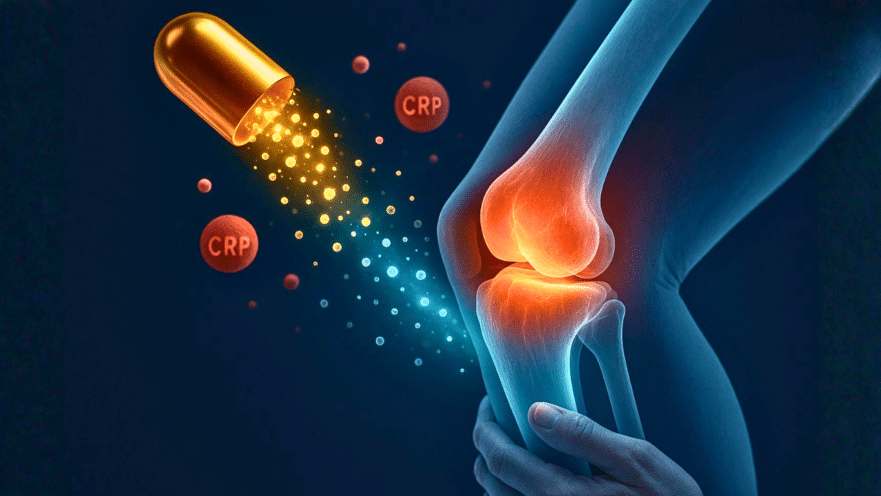
Are you among the millions of adults dealing with the daily aches and activity limitations of arthritis? If so, you’re probably always on the lookout for something—anything—that can reduce your pain and help you regain freedom of movement. While joint pain remedies range from medications and cortisone shots to physical therapy and even surgery, there’s a lesser-known nutrient that’s capturing attention: vitamin K2. We’re diving deep into the science behind vitamin K2, its role in relieving arthritis symptoms, and how you might benefit from this under-the-radar supplement.
Key Takeaways
- Vitamin K2 can reduce inflammation and may help rebuild cartilage.
- Research suggests it may aid both rheumatoid arthritis and osteoarthritis.
- Natural dietary sources of K2 are mainly fermented foods and some animal products.
- Consult your doctor before starting any new supplement regimen.
1. Arthritis: A Growing Challenge
Did you know that arthritis affects over 53 million U.S. adults, roughly one in six people? And for nearly half of those, it means living with limits every day. Traditional treatments help, but they don’t work for everyone—and they’re not without drawbacks. The need for alternative or supplemental options is greater than ever.
2. Vitamin K2: What Makes It Unique?
Vitamin K isn’t new, but vitamin K2 deserves more credit than it gets. K2 is a fat-soluble vitamin, different from its sibling K1, primarily because it boasts a much better absorption rate. This means your body can put it to use more efficiently, and you could reap more of its benefits—especially for joint and bone health.
3. The Research-Backed Powers of K2 for Arthritis
Recently, chiropractors and nutrition experts have touted K2’s benefits on platforms like TikTok and YouTube. What’s more important is that science backs them up:
- A 2021 study in Current Developments in Nutrition found that K2 has an “immunosuppressive function” in rheumatoid arthritis (RA) patients, potentially helping to calm inflammation.
- A 2024 publication in Biomedicine & Pharmacotherapy concluded that K2 could safeguard knee joints damaged by osteoarthritis—by boosting bone strength, slowing cartilage breakdown, and reducing inflammation in the tissue that cushions your joints.
4. How Does Vitamin K2 Help Your Joints?
Here’s where it gets interesting: K2 doesn’t just work on bone health. Multiple experts explain that it helps remove calcium buildup and calcification from your joints. This is crucial because misplaced calcium can cause joints to stiffen, inflame, or deteriorate. On top of that, K2 supports the rebuilding or remodeling of cartilage, giving your joints a fighting chance.
5. The Inflammation Connection: C-Reactive Proteins
Inflammation is at the root of most arthritis pain. Here’s where C-reactive protein (CRP) comes in—a marker your liver releases when there’s inflammation. Studies indicate that K2 supplementation may help reduce CRP levels, signaling a drop in inflammation and potentially easing arthritis symptoms.
6. More Reasons to Love K2: Beyond Arthritis
Vitamin K2 isn’t just for joints!
- Supports heart health: K2 helps prevent calcium from lodging in blood vessels, promoting clear arteries.
- Bone density boost: By activating the protein osteocalcin, K2 assists the body’s bone-building cells in keeping bones strong and fracture-resistant, especially vital as you age.
7. Where to Find Vitamin K2 in Foods

Getting nutrients through food is always best. Unfortunately, K2 isn’t as abundant in the standard American diet. It’s found in:
- Nattō (a sticky, fermented soybean dish from Japan)
- Blue cheese and Gouda cheese
- Egg yolks
- Other fermented animal products
It’s worth noting these tend to be higher in fat and not always considered heart-healthy, so moderation is key.
8. Vitamin K2 vs. K1: What’s the Difference?
You may have heard of vitamin K1, present in leafy greens, broccoli, and nuts. However, K2 absorbs better and is especially powerful for moving calcium out of places it doesn’t belong, like joints and blood vessels, and into bones, where you want it.
9. How Much Vitamin K2 Do You Need?
Both K1 and K2 count toward your total vitamin K intake. The NIH recommends:
- Women: 90 mcg/day
- Men: 120 mcg/day
But remember, because most diets are richer in K1, boosting your K2 intake may require a little planning.
10. Should You Take K2 Supplements?
Supplements might be helpful, especially if you struggle to get enough K2 through diet. However, always consult your healthcare provider before starting any new supplement—especially if you take blood thinners or have medical conditions, as vitamin K plays a significant role in blood coagulation.
11. Final Thoughts: The Future of Vitamin K2 and Joint Health
The evidence supporting vitamin K2 for arthritis relief is growing. It could be the missing piece in your joint health puzzle, reducing inflammation, preserving cartilage, and supporting overall bone strength. While it’s no silver bullet, when combined with a holistic approach—healthy eating, regular movement, and medical advice—K2 could make a meaningful difference in your arthritis journey.
Sources
- Centers for Disease Control and Prevention (CDC). “Arthritis.” https://www.cdc.gov/arthritis/data_statistics/national-statistics.html
- National Institutes of Health (NIH). “Vitamin K: Fact Sheet for Health Professionals.” https://ods.od.nih.gov/factsheets/VitaminK-HealthProfessional/
- Current Developments in Nutrition (2021). “Vitamin K2 exhibits immunosuppressive function in patients with rheumatoid arthritis.” https://academic.oup.com/cdn/article/5/Supplement_2/568/6292728
- Biomedicine & Pharmacotherapy (2024). “Vitamin K2 protects knee joints affected by osteoarthritis.” https://www.sciencedirect.com/science/article/abs/pii/S0753332224001820
- Cleveland Clinic. “C-reactive Protein Test.” https://my.clevelandclinic.org/health/diagnostics/16752-c-reactive-protein-crp-test
Always consult your healthcare provider before starting a new supplement, as this article is provided for information only and is not a substitute for professional medical advice.

